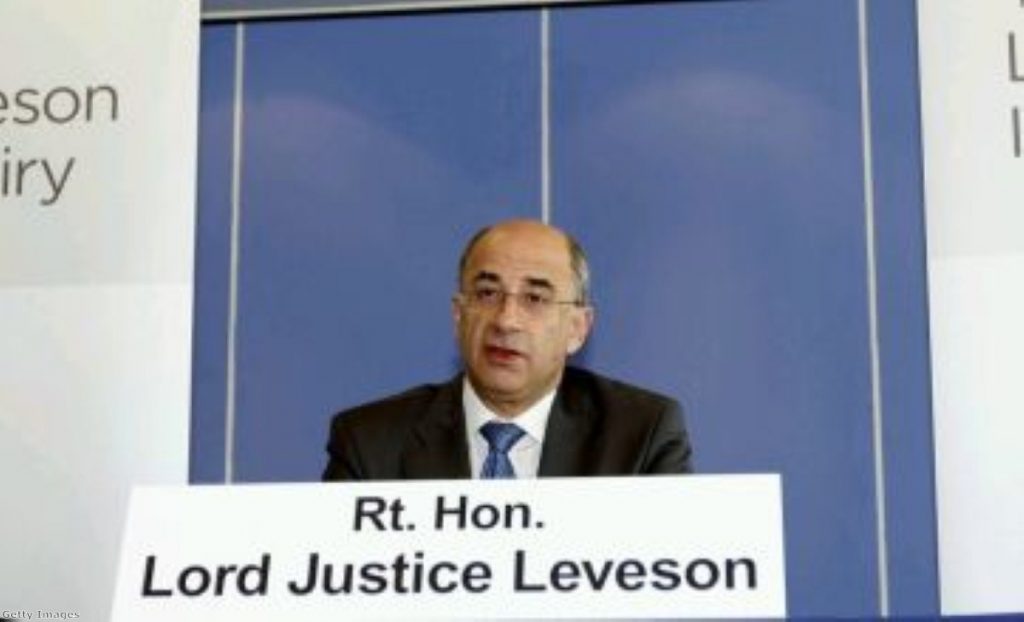Inquiry criticisms ‘troubling’, Leveson warns
By Alex Stevenson Follow @alex__stevenson
The judge leading the inquiry into the conduct of Britain's journalists has repeated his warning against critics of his probe.
Lord Justice Leveson opened the latest phase of his inquiry by making a statement in which he pointed out that nobody had said the present system of regulation is "adequate or sufficient".
He noted widespread concerns that the present system of legal remedies for complaints with the press are "slow and expensive" and concluded: "It is only sensible that better ways forward are considered."


Many journalists fear the Leveson inquiry, which has exposed the press to weeks of negative coverage, is having an impact out of proportion with the true state of the British media.
Lord Justice Leveson made clear he did not want to see criticism of his inquiry when it began and underlined that warning today.
"Publicly to express concern about the inquiry is itself somewhat troubling," he said.
"I do not believe the inquiry was or is premature, and I intend to continue to do neither more nor less than was required of me."
He delivered a defence of the rights of a free press but said journalists should not hold themselves above the law.
"I have repeatedly emphasised the vital role that responsible journalism plays in our society," Lord Justice Leveson said.
"I have recognised the overwhelming majority of journalists work to high standards day after day."
He later added: "I am very happy yet again to reassert my commitment to a free press and to freedom of expression.
"These freedoms are vital entitlements of every one of us but they are rights which do not exist in a vacuum. In a democracy they do not obliterate or trump other rights, not least the right of rule of law for all."
Lord Justice Leveson also paid tribute to Sunday Times journalist Marie Colvin, whose death in Syria last week left Fleet Street in shock.
"There is no better example of the very best in journalism than that provided by Marie Colvin, whose determination to illuminate events in the most dangerous corners of the world… and the ultimate sacrifice she made in doing so all underline the need to preserve and protect free speech and a free press."
Today marks the opening of the inquiry's examination of the potentially "cosy relationship" between the police and the press – "and the extent to which that has operated in the public interest".









